Synopsis – Ahsoka Tano and Sabine Wren seek to prevent the return of a great leader of the Empire and to find the Jedi Ezra Bridger.
A Brief History of Tano
The character of Ahsoka Tano was created by George Lucas in 2008 to explain the evolution of Anakin Skywalker between Episodes II and III. Under the direction of Dave Filoni, her spiritual successor, her story quickly outstripped the Clone Wars series, during which she was logically supposed to disappear, and we find her in Rebels, a novel, various comic books and animated pastilles, before making a remarkable entry into live-action in The Mandalorian season 2. Now she’s getting her own series before probably appearing in the film that will close the Mandoverse.
This little history also reminds us that at first the character was very, very badly accepted by the fan community for good – or bad – reasons, but that after years of bludgeoning by Dave Filoni, Ahsoka became one of the most powerful and bizarrely important characters in Star Wars without ever having had any impact on the whole saga.
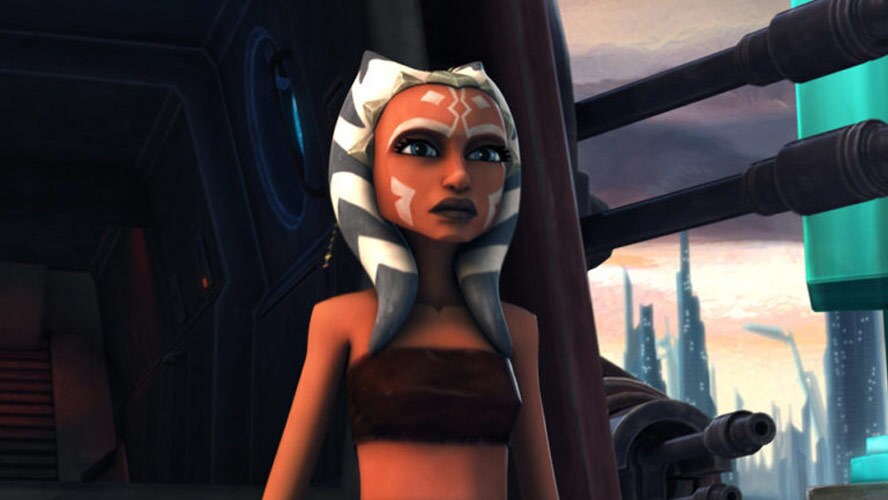
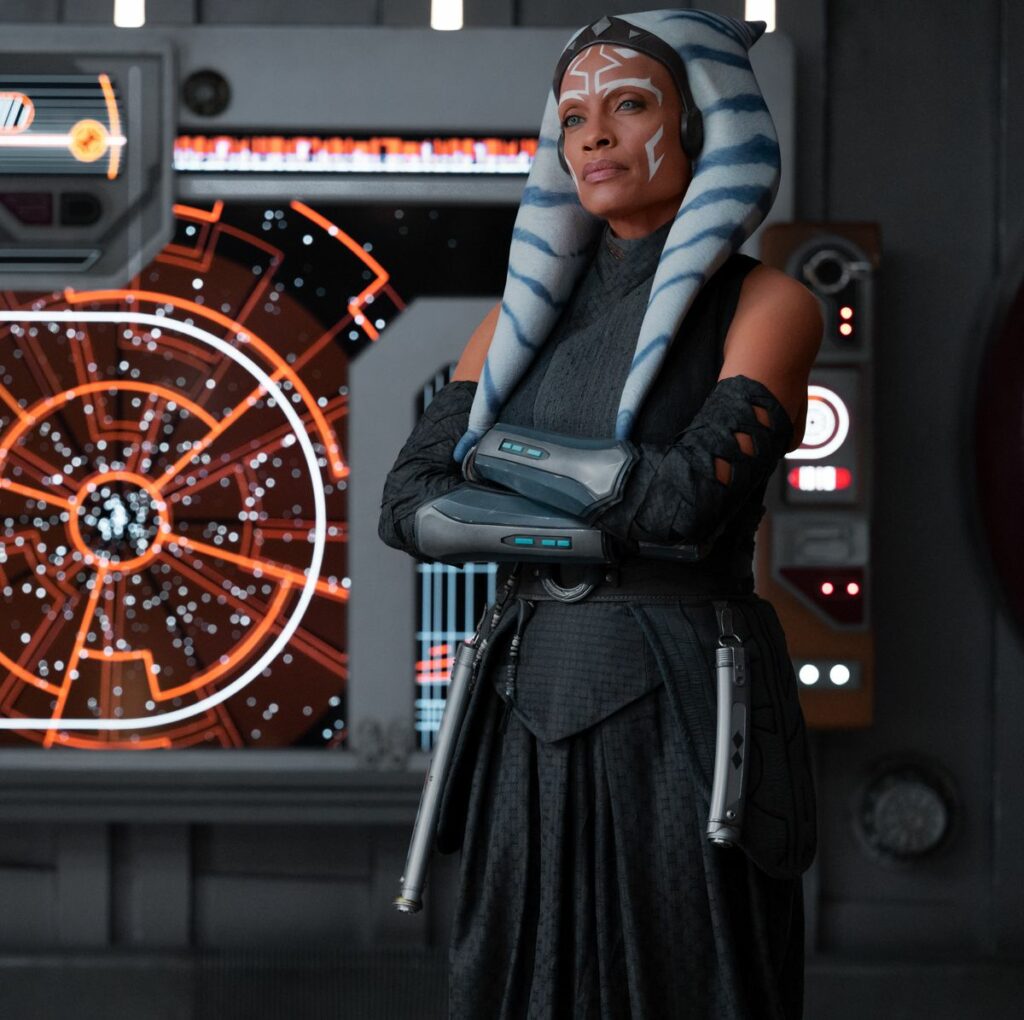
A series for whom?
The Ahsoka series was obviously eagerly awaited by fans as a sequel to the Mandoverse storyline, but above all as a sequel to Rebels. In fact, Ahsoka is packed with references and cameos that will delight fans.
Unfortunately, Filoni hasn’t bothered to ease the way in for newcomers; doing your homework will be compulsory, and despite this a curious feeling of gaps will be felt, and elements will be confusing. The neophyte will be left out in the cold, the fan bewildered.
For example, Sabine the Mandalorian gets a very (too?) unexpected development and a new dynamic with Ahsoka; the series emphasises their relationship throughout, but always in the vague, and in the end this relationship seems very artificial, the development sloppy.
The action sequences are very clean, with some very nice special effects (always good to see in recent Disney productions), and there are some truly magnificent sequences supported by some inspired pieces of music. It’s easy to get carried away by these moments, which are likely to become cult favourites, provided you don’t think about the coherence of what’s actually happening on screen.
Once a rebel…
Returning to the characters, we find Rosario Dawson reprising her role as Ahsoka, Natasha Liu Bordizzo well cast as Sabine, the late Ray Stevenson as a quiet, monolithic fallen Jedi, and Mary Elizabeth Winstead in cosplay as Hera Syndulla. One character caught the audience’s attention with her charisma, Shin, played by Ivanna Sakhno; a veritable remake of Darth Maul, she never blinks and takes over entire sequences from Episode I.
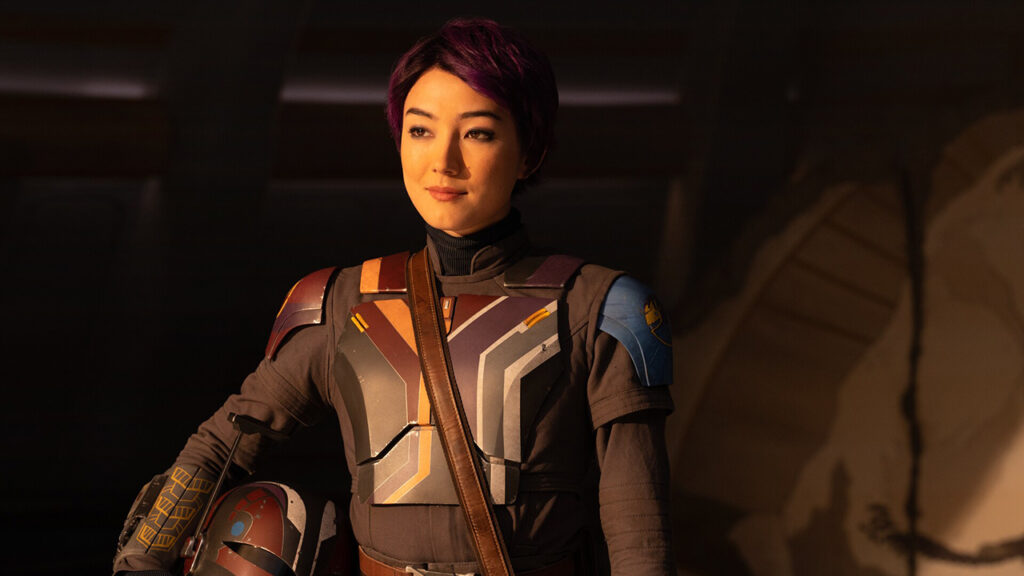
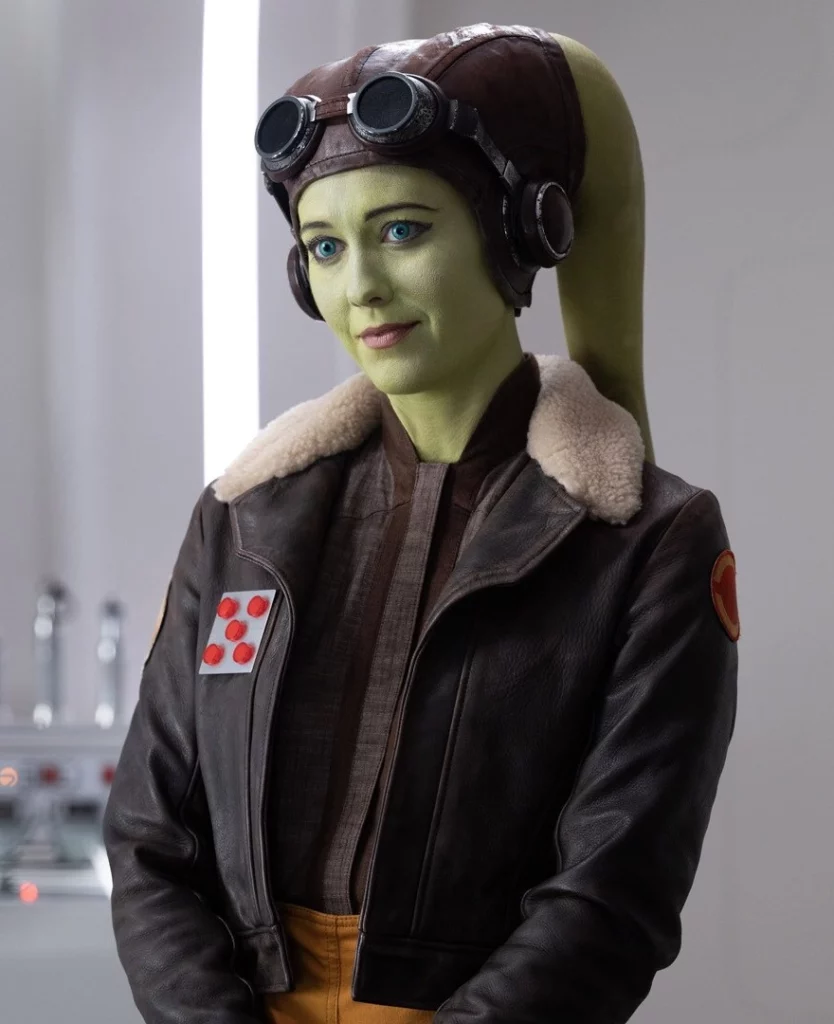
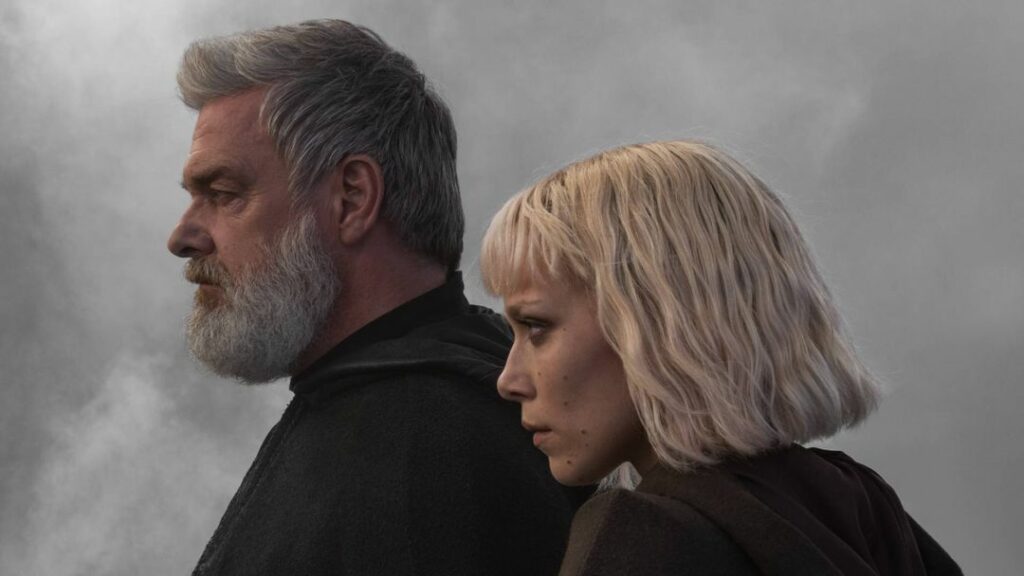
Rythm’n Blue
What about the plot in general? Ahsoka and the group of villains are on a quest to find a star map that will lead them back to Grand Admiral Thrawn. This very conventional starting point takes them to some very unexpected places for the Star Wars universe, but unfortunately very bland visually.
Once again, we find ourselves faced with a 2-hour film stretched into 5 hours over 8 episodes. This is reflected in the pace and the filler, with episodes that are literally “action” or “introspection” episodes that barely advance the plot. The major difference is that, while it’s usually easy to say “you have to watch the whole series in one go to appreciate it”, here it’s the fact that the series is broadcast on a regular basis that makes it all the more interesting. Here, it’s precisely the weekly broadcast that manages to mask the inconsistencies in the story, the decisions and the totally contradictory characters of the characters.
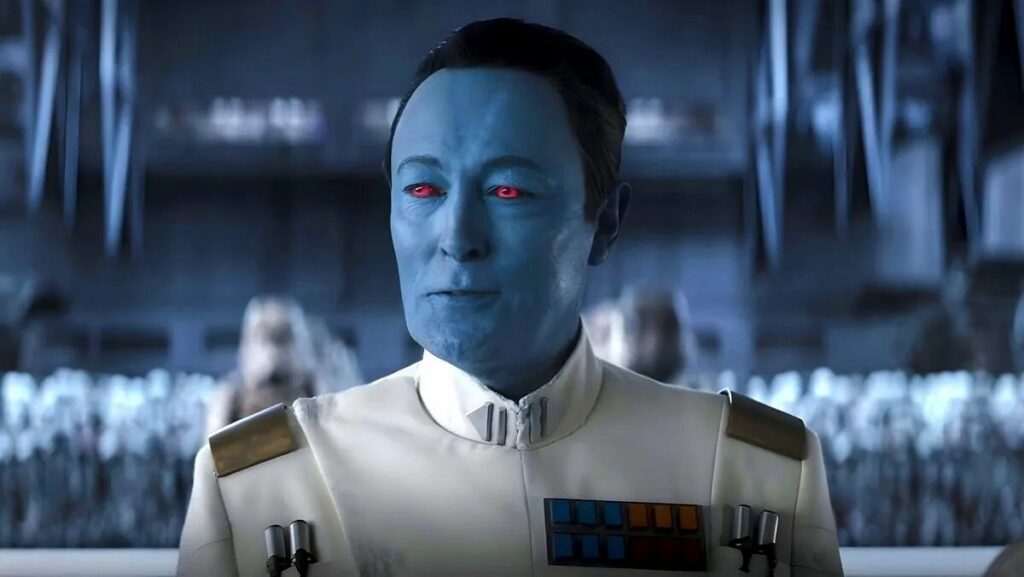
Teaser/20?
From the second half of the season onwards, you get the impression that you’re watching a long introduction to the Mandoverse film, and you suddenly understand the astonishing development choices, the brutal breaks in pace and the action-packed episodes: you have to fill the time.
In the end, in yet another duel-tribute to samurai films, we realise that Filoni has an enthusiastic sense of cool, but always to the detriment of the coherence of the script and the universe. It’s very difficult for him to tell a story or clearly convey a message, and while that might have been an illusion for a 20-minute episode of an animated series for children, 10 years have gone by, and Andor has turned what you might expect from a Star Wars film on its head.
Ahsoka has grown…and so have we.














